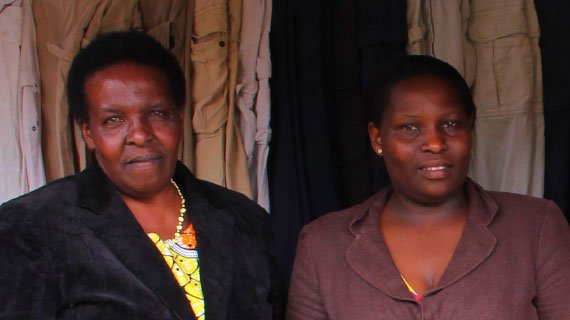
Scholarship support in Uganda had unexpected benefits, as it enabled young women to help their families launch thriving businesses.
This article is part of a series exploring the transformation of African women's lives through education.
After visiting Gloria Natukunda in her chemistry classroom on a rainy Saturday morning, we stop by a small roadside shop to meet her mother, Margaret Tumusiime. This shop, where her mother sells a range of second-hand coats and bags, was an unexpected spin-off of a scholarship program backed by the Carnegie Corporation of New York.
The program, which ran from 2000 to 2010, provided comprehensive support to female scholars in select African universities, ensuring that all of their financial needs were covered. Often, the young women, including Gloria, would send some of their pocket money to their families back home.
Sensing an opportunity to create an enduring investment, Gloria asked her mother what kind of business she would like to run. Margaret came up with the idea of selling used clothing and accessories, and Gloria was able to provide the start-up capital.
From the proceeds of the business, Margaret was also able to establish a small catering business, and she now employs a handful of women.
"Before I had nothing to eat and no money to pay school fees. It was terrible," says Margaret. "Now I am comfortable. All of my children are educated with their degrees. I am very happy.”
While African universities often attract criticism for failing to inculcate their students with entrepreneurial skills, Gloria’s story serves as a counterexample. Through helping her mother launch two small companies, she gained valuable business experience and improved her family’s financial security.
Other female scholarship recipients in Uganda shared similar stories with me. The financial award, combined with their newfound knowledge and confidence, empowered these young women to become breadwinners and trusted advisors in their families, often turning the established patterns of gender dominance and decision-making on their heads in the process.
For example Juliet Akello, whose family I met in the town of Gulu, was plowing part of her income back into reviving the family farm and making it profitable. They are raising chickens and cultivating crops such as groundnuts and bananas to sell in fast-growing Gulu, where the demand for fresh, good-quality produce is high.
Harriet Jongisha is another scholarship recipient who has employed her knowledge and financial resources to help her family establish a small agricultural business.
Currently a lecturer in agribusiness at Makerere, Harriet used a portion of her salary to purchase a large parcel of land for her mother. Her mother is now growing coffee, bananas, beans, groundnuts, sweet potatoes and soybeans, in addition to raising cows, goats and poultry. She has transcended beyond subsistence farming and is earning a comfortable living from working the land.
Harriet says many young Africans mistakenly believe that there is no future in farming, so they move to congested cities where jobs are scarce. Instead, they could be producing food for an expanding urban population, and earning decent money in the process.
“We don't have a culture of commercializing agriculture,” says Harriet. “I want to help people like my mother use farming to alleviate poverty.”
Megan Lindow is an award-winning writer based in Cape Town, South Africa. She is a former Africa Correspondent for the Chronicle of Higher Education and the author of Weaving Success: Voices of Change in African Higher Education, the story of a major 10-year initiative investing in African universities.
- News


